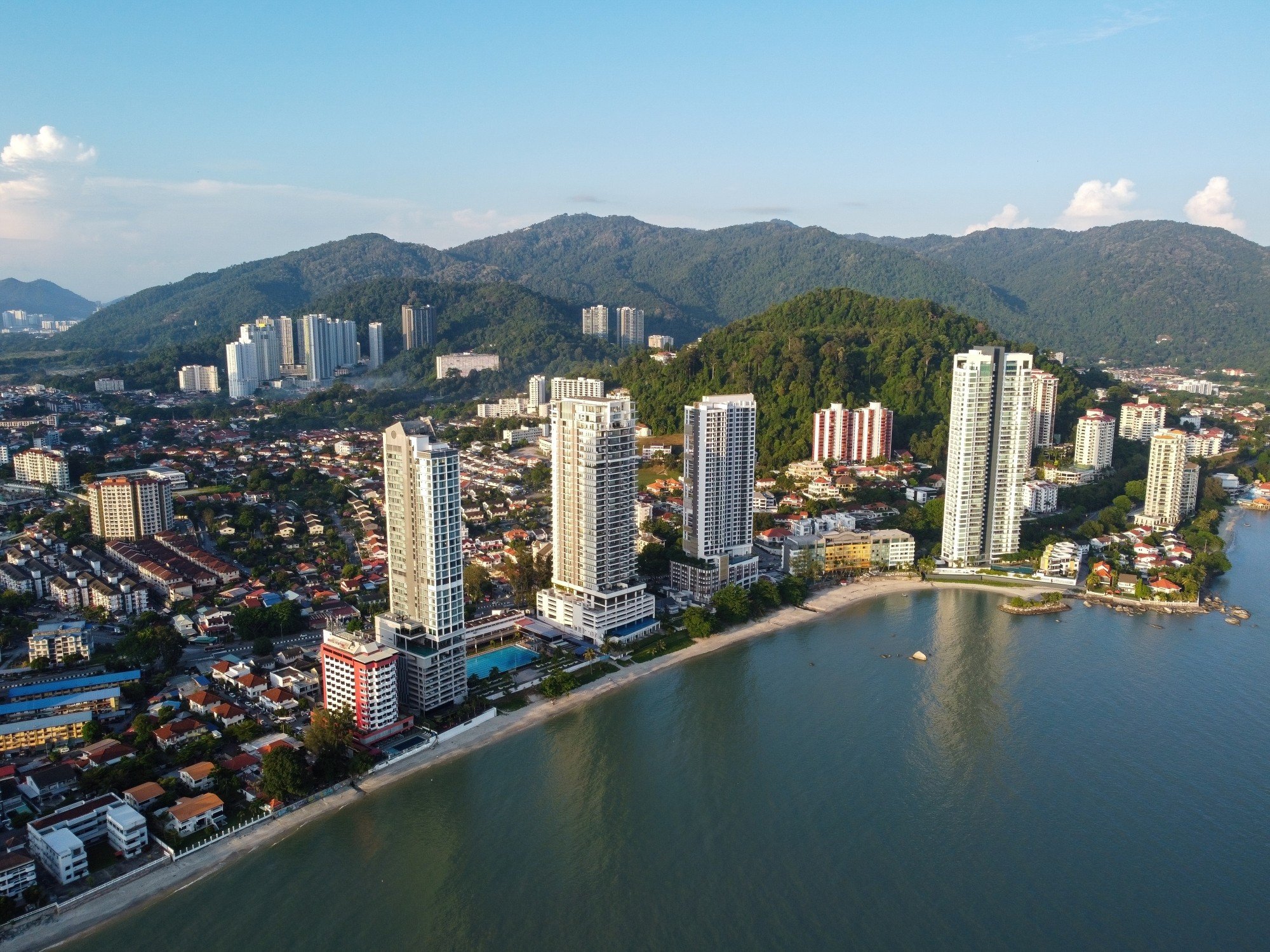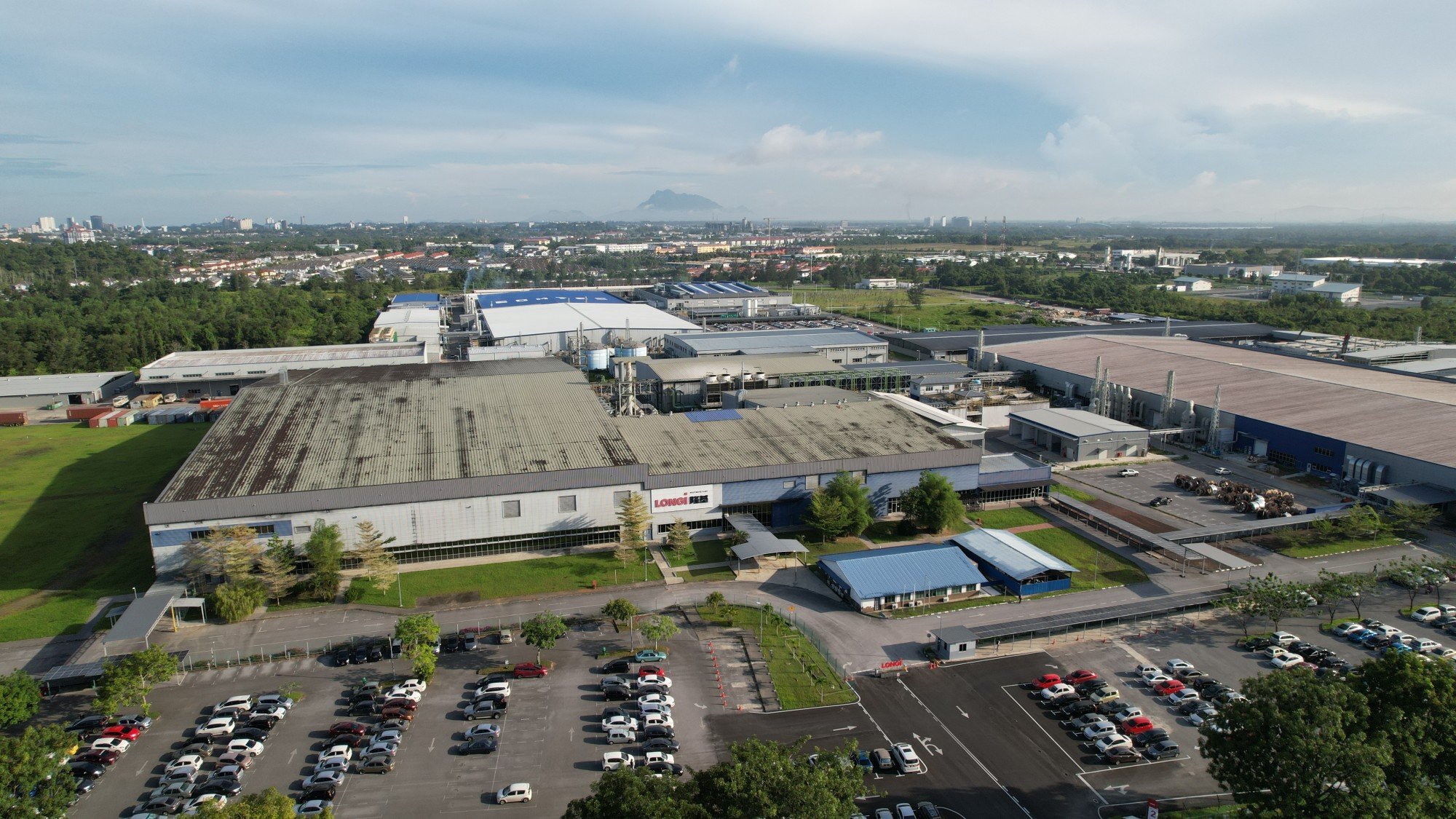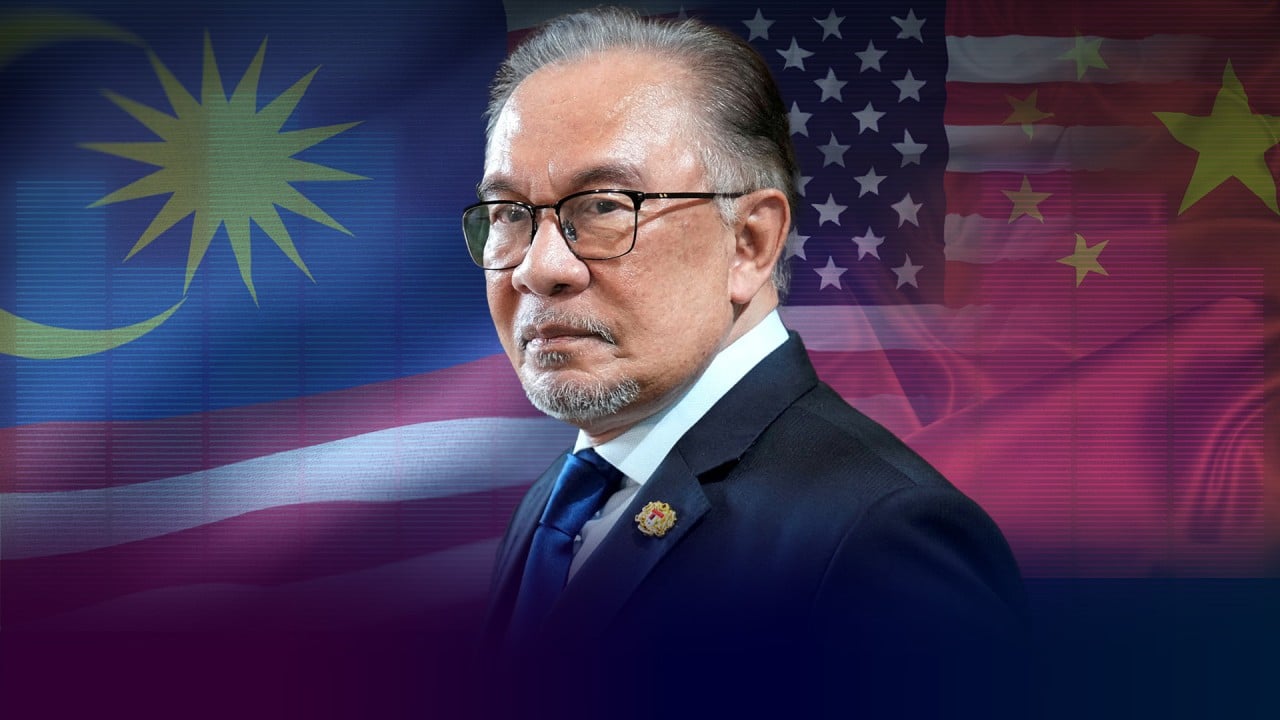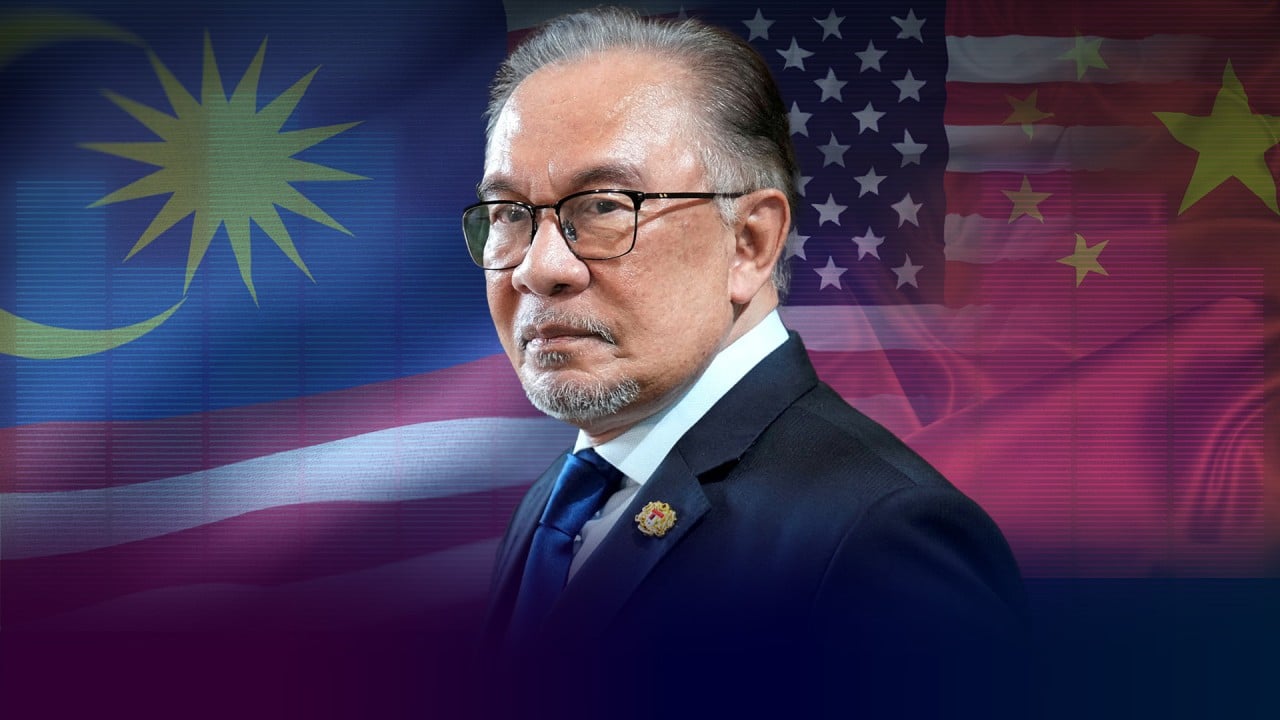Malaysia will not abide by US tech sanctions on China if it involves companies that do not come under Washington’s jurisdiction, Prime Minister Anwar Ibrahim says, as his country leverages its reputation as a global semiconductor hub to draw fresh investments driven by the technology war between the two superpowers.
Global semiconductor firms with a presence in China have been shopping around Southeast Asia for sites to expand their operations amid increasingly strict US sanctions designed to crimp the supply of top-line chips.
Washington claims these components pose a national security risk if used by China to build competing technology.
The shift has benefited Malaysia, which has received billions in investments from US firms. Intel in 2021 announced a US$7 billion plan to expand its advanced packaging facility in Penang state, while graphics card giant Nvidia has made a US$4.3 billion injection to develop its artificial intelligence capabilities in the country.
Anwar called the United States an important investment partner and export destination for chips made in Malaysia, but stressed that his administration could not legitimise unilateral sanctions that would compromise his country’s independence.
“The Americans can impose [sanctions] if they [involve] American companies. It’s fair. But they can’t impose everything on us,” the prime minister said in an exclusive interview with the Post at his office on June 6.
“If it is our product or some other foreign product [manufactured in Malaysia], we are free to do what we like.”
Last month, Anwar told a regional semiconductor conference that Malaysia was the global industry’s best bet for a “neutral and non-aligned location” to do business, as companies seek to mitigate the effects of the US-China tech war that has disrupted supply chains of chips vital for making everything from smartphones to electric vehicles and renewable-energy solutions.
Malaysia, which already supplies 13 per cent of the world’s demand in the industry’s packaging and testing sector, aims to secure at least US$106 billion in new semiconductor investments under its National Semiconductor Strategy.
A significant part of the plan involves breaking into front-end wafer fabrication manufacture and integrated circuit design, an area considered to be the holy grail of chip production that could potentially bring in tens of billions of dollars in investments just to build a single fabrication plant, or Fab.
Anwar said Malaysia has already secured investments to build two Fabs, with one confirmed in Penang state, also known as the ‘Silicon Valley of the East’, with the other to be built elsewhere.
On Tuesday, US firm MKS Instruments announced plans to start construction of a “supercentre” factory next year in Penang, which the company said will support wafer fabrication equipment production both regionally and globally. It did not reveal the value of the investment.
“I’m rather optimistic. That’s why last week we made clear our policy position,” Anwar said of Malaysia’s National Semiconductor Strategy.

The prime minister conceded that the recent flurry of investments by American firms in Malaysia’s semiconductor sector could expose the country to increasing pressure from Washington, especially with Malaysia responsible for supplying at least 25 per cent of the US demand for chips.
Earlier this month, a Malaysian firm was slapped with US sanctions for allegedly shipping electronic parts and components to Russia for use in its war on Ukraine, the US State Department was quoted as saying in a report by Qatar-owned broadcaster Al Jazeera.
“We checked. It is not manufactured here. It is a trading company and it [exports] doesn’t go against the United Nations sanctions,” Anwar said.
“But even then we said OK, we’ll discuss with the United States … if they have evidence to adduce, to provide. But as it stands, no.”
Despite the growing pressure from the US, Anwar said Malaysia remains open to building on its existing relationship with the superpower in the semiconductor space while it also pursues opportunities with other partners, particularly in Asia.

Malaysia is drawing greater interest from mainland Chinese and Taiwanese participants, he said, adding that the government is at the same time supporting home-grown firms so they can break into the top tier of semiconductor production and compete at a global level.
“We have an edge, of course. [The industry] has been there for some time now, for a few decades. Now we are merging to the front end and the level of sophistication,” Anwar said.
The government, Anwar said, will not place any restrictions on Malaysian companies seeking potential partners of clients, including on where they can sell their products, unless barred by sanctions imposed by multilateral organisations such as the UN.
This position, however, will invariably lead to further scrutiny by the US if it sees Malaysia supplying vital components to its rivals, especially China.
Anwar said Malaysia has already set up semiconductor deals with China “in some minor areas”, and expects these to expand with more investments between the two nations.
“They say you also have investments in China, you are exporting to China. Yes, it is our product, we can of course export,” Anwar said.
“We will undoubtedly face some issues, some questions. But I hope we can manage.”



